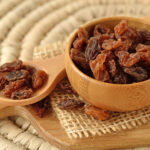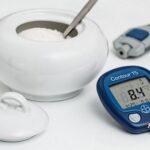You’ve likely been told at one time or another that if you want healthy eyes, you need to eat carrots. And while the old adage has some truth to it because the beta carotene in carrots is converted to vitamin A – a vitamin that is needed for optimum eye health — there are other, and perhaps even better foods to eat. Here are some of those foods:
10-Raw Red Peppers :

Eye health is often seen as something to care for when we get older, especially as new research uncovers the risks of age-related impairments. However, there are ways that you can help maintain eye health now. Bell peppers are a great way to do so: they contain the most vitamin C per calorie compared to other fruits and vegetables; science suggests that this could lower our risk of developing cataracts. Other foods like bok choy, cauliflower, papayas, and strawberries also have high levels of this essential nutrient which helps protect our eyes. It’s even more effective if consumed raw since heat can break down vitamin C, but brightly colored peppers still pack eye-friendly vitamins A and E either way. Eye health may not always be top of mind but simple nutrition choices like adding bell peppers to your diet can help us keep our vision sharp for years to come.
9-Sunflower Seeds and Nuts:
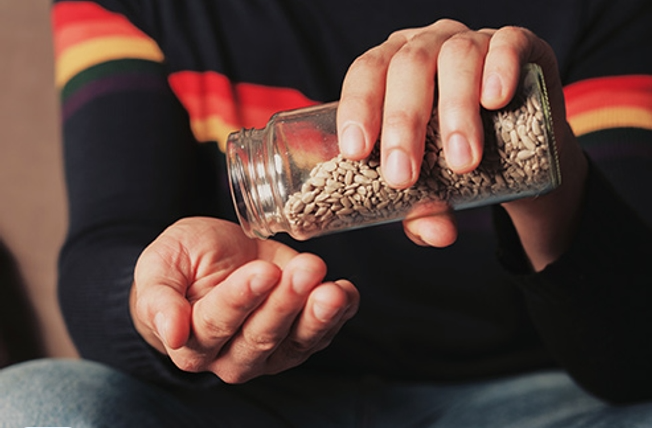
Eye health is an important factor in maintaining overall wellbeing, but it can be difficult to make sure you’re getting enough vitamins and minerals each day to support it. Luckily, a single ounce of almonds or seeds can provide half the intake of vitamin E recommended by the USDA for adults. A recent study discovered that vitamin E, along with other nutrients, may help delay the progression of age-related macular degeneration (AMD) as well as possibly defending against cataracts. Several other options such as hazelnuts, peanuts (including peanut butter) are equally good sources of vitamin E. Thus, making it easier to get your daily recommended intake and stay healthy!
8-Dark, Leafy Greens:
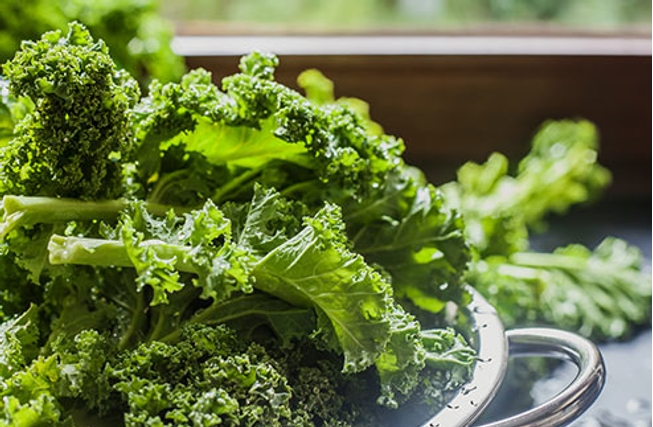
Eye health is important for maintaining vision over the long-term and certain greens are packed with vitamins and carotenoids that can help promote eye health. Kale, spinach, and collard greens are especially helpful, rich in vitamins C and E as well as lutein and zeaxanthin, two plant-based forms of vitamin A that are known to reduce the risk of developing long-term eye diseases and conditions like AMD (age-related macular degeneration) and cataracts. Unfortunately, many people who follow a traditional Western diet do not get enough of these essential nutrients.
7-Salmon:
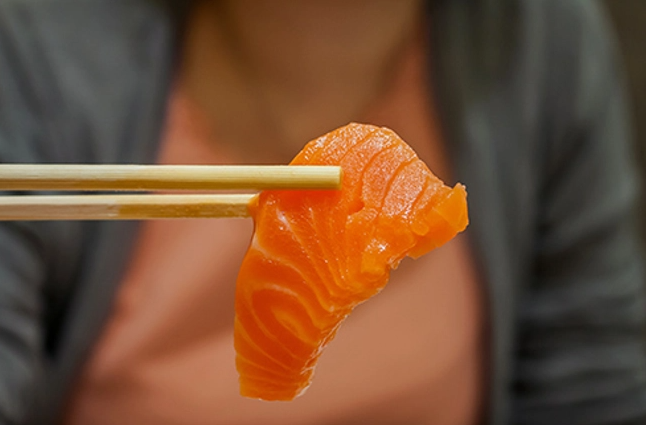
Eye health is essential to maintain overall wellbeing and vision. Fortunately, one of the most effective ways to keep your eyes healthy is by consuming omega-3 fatty acids from fatty fish such as salmon, tuna, and trout or other seafood. Omega-3s help provide two specific acids – DHA and EPA – that are necessary for the retinas to function properly, as well as protect your eyes from age-related macular degeneration (AMD) and glaucoma. Interestingly enough, research has found a correlation between low levels of these fatty acids and dry eye. Adding omega-3s into your diet is an easy way to ensure your eyes stay healthy.
6-Sweet Potatoes:

Eye health is especially important and oranges are a great way to take care of it. Orange-coloured fruits and vegetables, like sweet potatoes, carrots, cantaloupe, mangos, and apricots all contain Beta-carotene, a form of Vitamin A which helps with night vision. In fact, just one sweet potato has more than half the recommended daily intake of Vitamin C as well as some Vitamin E – two additional vitamins important for eye health. Eating orange fruits and vegetables can help you see in the dark more easily as well as give your eyes an overall boost.
5-Lean Meat and Poultry:
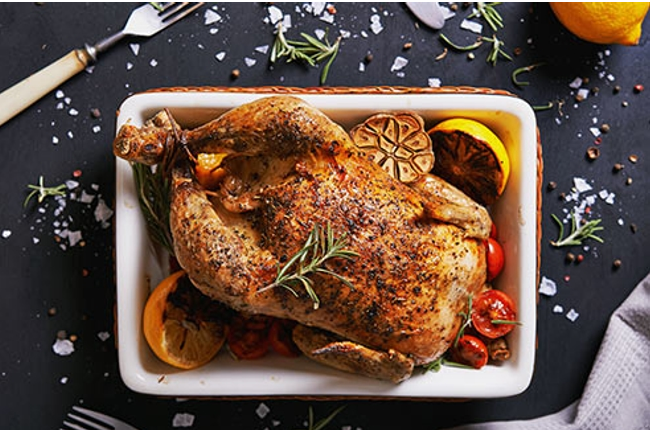
Eye health is an important factor in our overall health, and luckily there are many foods that are rich in zinc which help us to maintain it. Zinc is a nutrient which helps transport vitamin A from your liver to your retina, where it can be used to produce protective melanin pigment. While oysters have a higher concentration of zinc than any other food, beef, pork, and chicken (both dark and light meat) are all great options for increasing zinc intake. Additionally, foods like beans and whole grains also contain significant amounts of this essential mineral. Taking care to include enoughofthese nutritious sources in our diets allows us to safeguard our eye health for the long run.
4-Beans and Legumes:
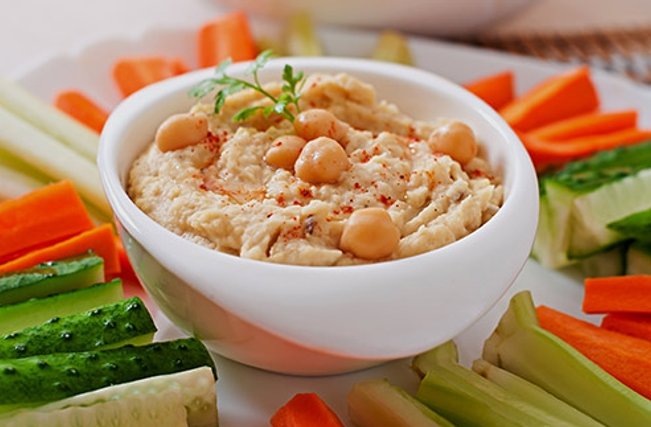
Whether you’re trying to improve your vision or just want to stick with a healthier overall diet, including more vegetarian options into your nutrition plan can be beneficial. Not only do chickpeas provide a significant boost of protein and fiber, they also contain the essential mineral zinc which has been linked to helping slow age-related macular degeneration. Black-eyed peas, kidney beans, and lentils are excellent sources as well and can easily be incorporated into a variety of meals. If you’re looking for an easy way to get your daily dose of these important nutrients then look no further than a can of delicious baked beans!
3-Eggs
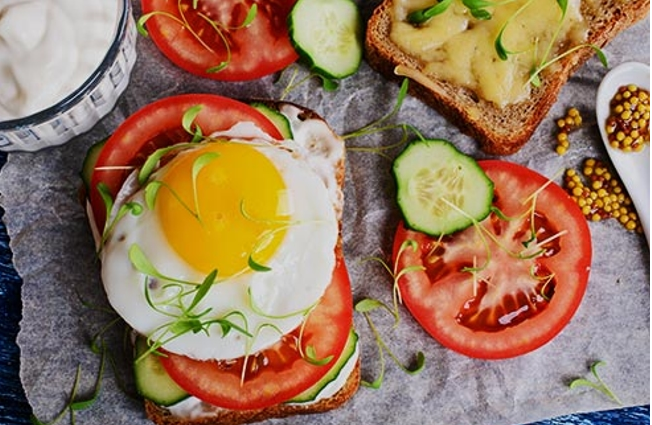
Whether you love them fried, scrambled, or just boiled and over-easy, eggs are a superfood to start your day. Not only are they packed with protein, but the zinc in an egg will actually help release the lutein and zeaxanthin found in its yolk to aid our vision. This powerful combo works together to filter out blue light that may cause damage to your eyes, as well as boost pigment levels in the macula which controls our central vision. So yes, now you have even more excuse to add eggs into your diet!
2-Squash:
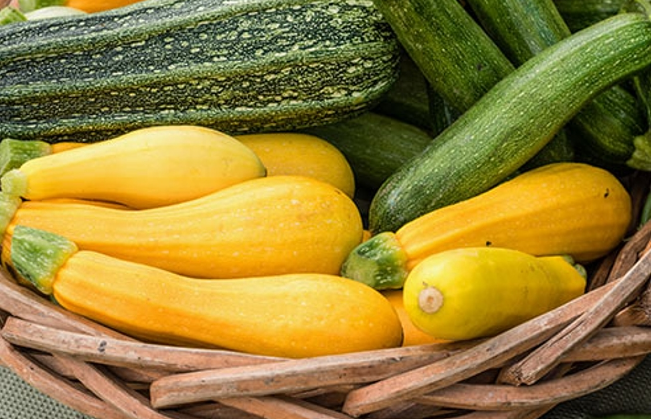
Squash is a wonderful, nutrient-dense vegetable that can give your body important elements it can’t make on its own, namely lutein and zeaxanthin. But squash doesn’t stop there; it also provides other essential vitamins and minerals throughout the entire year. Depending on the type of squash–whether summer or winter–you get different levels of specific nutrients. Supportive fiber, vitamin C, and zinc come with summer squash while winter squash offers up vitamin A as well as omega 3 fatty acids. Squash deserves a top spot in your diet for both its taste and health benefits!
Broccoli and Brussels Sprouts:

Whether you like them roasted, grilled, steamed or mashed, these related veggies provide a powerful health benefit. They offer an unbeatable combination of antioxidants that can help protect your eyes, including vitamins A (as lutein, zeaxanthin and beta-carotene), C and E. These antioxidants work together to defend the delicate cells in your retinas from harmful free radicals. Rest assured that with these veggies in your diet, you’re taking an important step for eye health!








